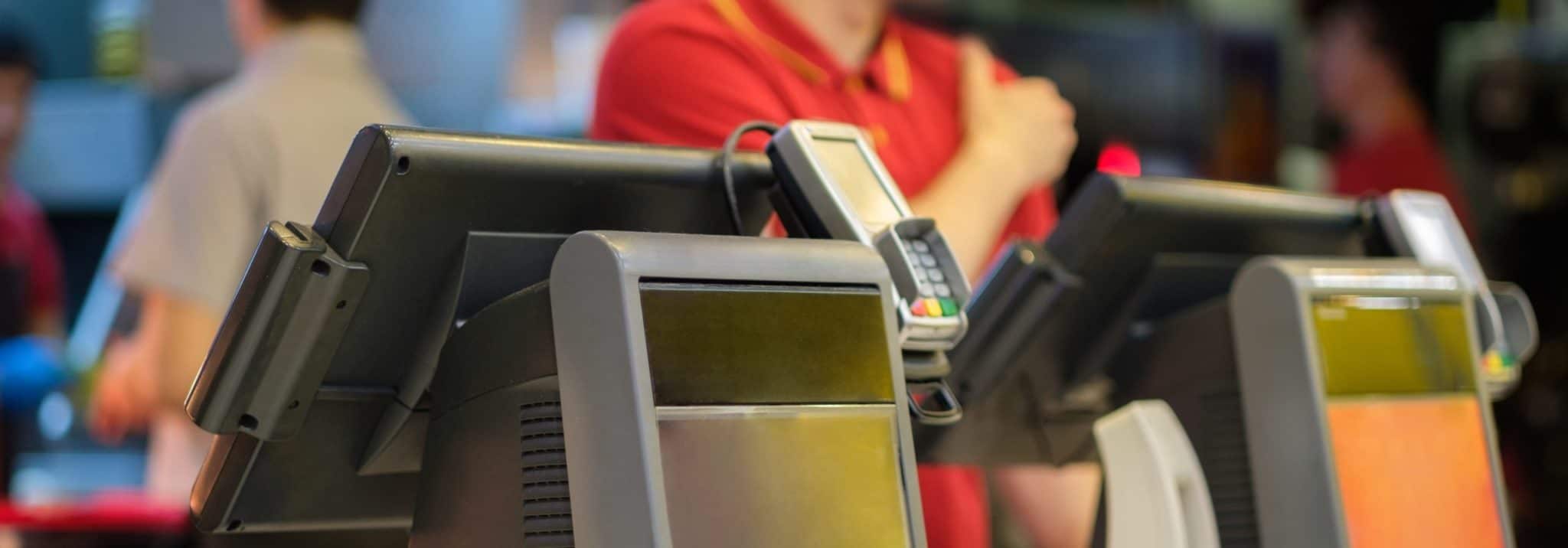Menu
Login
- SOLUTIONS
-
-
FRANCHISEES
-
FRANCHISORS
PARTNER VENDORS
-
-
-
- MARKETPLACE
- RESOURCES
- ABOUT
- SCHEDULE A DEMO
-

Throughout COVID-19, QSR owners have navigated and overcome many obstacles. As customer preference shifted to more drive-through and carry-out orders, QSRs saw a dramatic increase in data from new delivery services such as GrubHub, DoorDash, Uber Eats, and more.
Although the specific operational complexity of this challenge was new, it highlights a long-standing challenge many restaurant owners face — how to prepare for and adopt new technologies as they evolve. Too often, owners have found themselves scrambling to reconcile data from vendors to get a clearer picture of their overall performance as well as to transfer data from one system to another, such as from a back of house to a payroll system. But should this responsibility fall to restaurant owners?
The restaurant technology ecosystem has grown increasingly complex. Many past technological processes involved highly manual and archaic operations, and these systems get in the way of innovation. Because restaurant owners are resourceful problem solvers by nature, many found ways to adjust to the new demands of pulling together siloed information, either manually or with in-house IT projects.
But disparate, purpose-built technologies often serve as problematic band-aids for larger issues. Hiring an IT consultant or a junior analyst can increase the complexity of the technology, generating siloed data that doesn’t roll-up and ultimately making data integration more difficult.
Which begs the question: Why are operators responsible for cobbling together their own processes for sending data to their service providers when those very providers are dependent upon receiving that data to generate revenue? Since their viability depends on receiving accurate and timely data, shouldn’t vendors take responsibility for gathering this information instead of placing that burden on the shoulders of their customers? There comes a time in all relationships when roles and responsibilities should be re-examined – including relationships with vendors.
Restaurant technology and service providers need other systems’ data to deliver closed-loop services and value. One example worth highlighting is payroll data. Restaurant owners often have multiple locations, with employees calling in sick and needing to cover for one another. At times, they might even need to borrow employees from one location to work at another, just for a day or two. It’s enough of a juggling act from a staffing standpoint alone, but situations like that can tie the payroll ledger into knots.
When payroll vendors don’t synchronize data across various locations, owners might need to have employees manually report their timesheets or even hire an analyst or support staff to gather the data necessary to send to the payroll provider. With that lack of automated accountability, any restaurant owner risks accidentally over- or underpaying their employees.
In the best case, that’s a small inconvenience for owners and employees, but it also carries legal repercussions. The right payroll vendor can help integrate data from multiple locations, thus syncing employee information. This service can help owners avoid last-minute payroll adjustments and mistakes because it keeps everything organized, clear, and reliable.
In decades past, restaurant profits likely came from two channels: the front counter and drive-thru. Today, cash flow has expanded: delivery vendors like GrubHub and Doordash, app orders, in-store kiosks, and more are all potential revenue channels. Add returns, refunds, gift cards, and the like, and balancing the books has grown increasingly complex and time-consuming.
Multiple payment channels is a restaurant trend that isn’t going away anytime soon, so working with vendors that understand this challenge and are actively sharing the responsibility of streamlining these sources can significantly reduce operator stress and risk exposure.
Re-examining how vendors and partners can do more helps restaurant owners reduce administrative headaches. It also makes it easier to consider and adopt new technologies and opportunities that come along. With a wealth of options available, restaurant owners can’t afford to put off conversations that help them discover service providers who will manage the data collection and delivery process for them.
But most importantly, once the right partners and technological systems are in place, restaurant owners will be in a better position to harness data insights. The future’s most successful owners will be the ones best able to apply these data insights to help grow and improve their businesses. To accomplish this, these owners will require their vendors to take responsibility for automating their data.
PAR OPS' blog on operational strategies to grow your business faster.
Everything You Need to Know About Hiring & Retaining Teenagers During the 2021 Labor Crisis
Nickels and Dimes: 4 QSR Operational Money-Savers You Likely Haven’t Tried Yet
QSR Loss Prevention: 4 Ways to Prevent and React to Employee Theft